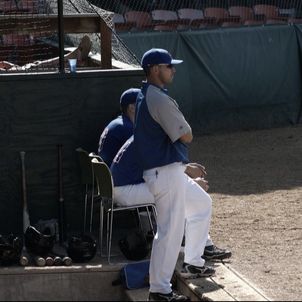"Everything I know is wrong...and given enough time, that will prove to be true."
I still remember how uncomfortable that made me when I heard it for the first time. We were there to provide information, so why would we tell everyone that we were wrong? Weren't we supposed to have all the answers...we were the experts? Why didn't anyone leave after hearing this absurd statement? Remember, I was still in university and that is an environment where no one admits they are wrong.
It didn't take long before I realized that the "everything I know is wrong" mindset is crucial for being a leader, coach, or effective learner. Here are 5 reasons why you need to come to grips with the fact that everything you know is wrong:
1. What is right for one person may be wrong for another
Coaching isn't one size fits all and it certainly has evolved from the "my way or the highway" approach of past decades. As baseball continues to embrace an athletic approach of developing on-field skills, the coaching will have to keep pace with a teaching style that is equally as diverse as the athletes that play the game. There are always a list constants or absolutes related to each skill, but mechanics that work for one athlete might not work for another.
2. Provides an opportunity to teach players to stand their ground
In my opinion this is a BIG concept for players and coaches to understand. As a player grows and matures, he needs to understand what works and what doesn't. "Standing their ground" essentially means that a player becomes more comfortable evaluating the information he is given and becomes more skilled at declining to employ every new idea that comes his way. It is the responsibility of the coach to provide enough information to their players that they begin to understand themselves better, rely on coaches less, and have the tools to evaluate information accurately. Coaches should consistently introduce new concepts and challenge players, but it is up to the player to know what pieces of information are critical for their success. Here is a personal example to illustrate...
I was a hard working player in high school that listened and respected all of my coaches. Coaches enjoyed working with me because I actually listened and made all the changes they asked me to make. In many ways this was a curse because in a 4 year span I had 5 completely different swings and ZERO consistency. I didn't critically evaluate the information I was being given and finished high school with no real understanding of my best swing.
3. Promotes lifelong learning
The sooner you realize that what you know will never be 100% correct for everyone or will be proven wrong over time, the more committed you will be to consistent self-education. Continue to learn and be excited when you are embarrassed by some of the things you were teaching 5 years ago.
4. Helps avoid complacency
Given enough time, much of what you know will be proven wrong (remember when slow motion video became mainstream?!?). This should be a very strong motivator to evolve your teaching methods over time. Don't be left in the dust by a world of instant information. The biggest enemy of progress is the phrase "that's the way we have always done it". Reevaluate the idea or concept immediately if you ever catch yourself uttering these words.
5. Realize you don't have the answers
This concept changed the way I approached coaching. Athletes tend to rely on coaches to provide them with constant feedback and solutions to what ails them. They become reliant on coaches. I turned this concept upside down and told my players that I don't have the answers. In fact, they have all the answers. My job as a coach is to provide them with opportunities to find the answers from within.



 RSS Feed
RSS Feed